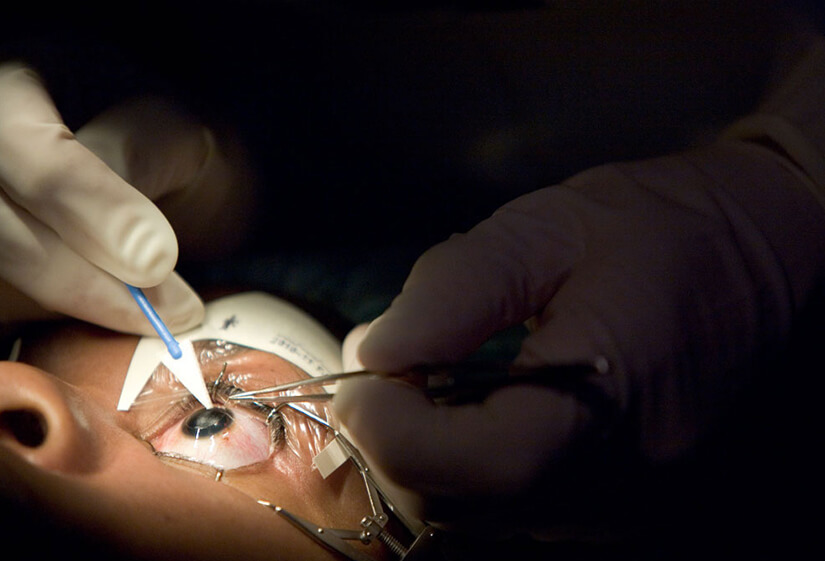In today’s fast-paced world, clear vision is invaluable. For those dealing with refractive errors like nearsightedness, farsightedness, or astigmatism, glasses and contact lenses have been the go-to solution. However, advancements in medical technology have paved the way for a more permanent solution: laser treatment for eyes. In this comprehensive guide, we’ll delve into the world of eye laser treatments, exploring their benefits, types, and most importantly, their cost.
Understanding Laser Eye Surgery (cost of laser treatment for eyes):
What is Laser Eye Surgery?
Laser eye surgery, also known as refractive eye surgery, is a medical procedure designed to correct vision problems by reshaping the cornea. This reshaping allows light to properly focus on the retina, resulting in improved vision. It is a safe and effective alternative to glasses and contact lenses.

Types of Laser Eye Surgery & cost of laser treatment for eyes:
There are several types of laser eye surgery, each catering to specific vision issues. Firstly, the three most common types include LASIK (Laser-Assisted In Situ Keratomileusis), PRK (Photorefractive Keratectomy), and SMILE (Small Incision Lenticule Extraction). Furthermore, your choice of procedure will depend on your eye condition and the recommendation of your eye care specialist.
The Benefits of Laser Eye Surgery:
Improved Quality of Life:
One of the primary benefits of laser eye surgery is the substantial improvement in the quality of life. Moreover, no longer needing to rely on glasses or contact lenses can be liberating, offering newfound freedom and convenience.
No More Dependence on Glasses or Contacts:
Imagine waking up in the morning with crystal-clear vision; no more searching for your glasses or struggling with contact lenses. With laser eye surgery, you can transform this vision into a reality. Bid farewell to the hassles of corrective eyewear.
Factors Affecting Laser Eye Surgery Cost:
The cost of laser eye surgery can vary significantly from one individual to another. Several factors influence the overall expense of the procedure.
Clinic Reputation and Location:
Well-established clinics in urban areas may charge more for their services than smaller facilities in rural locations. The reputation of the clinic and the experience of its staff can also affect pricing.
Surgeon Experience:
Experienced surgeons with a successful track record typically charge higher fees. It’s essential to choose a surgeon with a proven record of performing successful laser eye surgeries.
Technology Used:
State-of-the-art technology can increase the cost of the procedure. However, advanced equipment often results in more precise and safer surgeries.
Preoperative and Postoperative Care:
Comprehensive preoperative and postoperative care is essential for a successful outcome. These services may be included in the overall cost or charged separately.
Average Cost of Laser Eye Surgery:
LASIK (Laser-Assisted In Situ Keratomileusis):
LASIK is the most popular and widely performed laser eye surgery. On average, it can cost anywhere from 16k to 80k per eye. This price may include preoperative and postoperative care.
PRK (Photorefractive Keratectomy):
PRK is another common laser eye surgery, typically costing between $1,800 and $2,500 per eye. This procedure may be recommended for individuals with thinner corneas or other eye issues.
SMILE (Small Incision Lenticule Extraction):
SMILE, a minimally invasive procedure, often comes with a higher price tag, ranging from 35k to 1.5lakh per eye. Its advanced technology minimizes discomfort and recovery time.
Financing Options:
Paying for laser eye surgery doesn’t have to be a financial burden. Several financing options can make the procedure more affordable.
Health Insurance Coverage:
While most health insurance plans consider laser eye surgery an elective procedure and do not cover it, some exceptions exist. Check with your insurance provider for potential coverage options.
Flexible Spending Accounts (FSAs) and Health Savings Accounts (HSAs):
FSAs and HSAs, which are tax-advantaged savings accounts, enable you to earmark pre-tax dollars for various medical expenses, including laser eye surgery. Consequently, leveraging these accounts can yield substantial savings.
Financing Plans:
Many clinics offer financing plans with low or no-interest options. These plans allow you to pay for the surgery over time, making it more manageable for your budget.
Preparing for Your Laser Eye Surgery (cost of laser treatment for eyes):
Consultation and Screening:
Before scheduling your surgery, you’ll undergo a consultation and screening process to ensure you’re a suitable candidate. Your eye surgeon will discuss the procedure, answer your questions, and evaluate your eye health.
What to Expect During Surgery:
Laser eye surgery is a quick outpatient procedure that typically lasts 15 to 30 minutes. The surgeon will use anesthetic eye drops to ensure you remain comfortable throughout the process.
Postoperative Recovery:
After surgery, you may experience mild discomfort and blurred vision for a few days. Most individuals can return to work and normal activities within a week, but full recovery may take several weeks.
FAQs About cost of laser treatment for eyes:
Is Laser Eye Surgery Painful?
No, laser eye surgery is not painful. The procedure is performed under local anesthesia, ensuring you don’t feel any pain. Some discomfort or irritation may occur during the recovery period, but it is usually manageable with prescribed medications.
How Long Does the Procedure Take?
Laser eye surgery is quick and typically takes only 15 to 30 minutes for both eyes.
What Are the Risks Associated with Laser Eye Surgery?
While laser eye surgery is generally safe, some potential risks include dry eyes, glare, halos, and temporary vision fluctuations. Your surgeon will discuss these risks with you during the consultation.
Can I Undergo Laser Eye Surgery if I Have Other Eye Conditions?
Your eligibility for laser eye surgery depends on the specific eye condition and its severity. Some pre-existing conditions may disqualify you from the procedure, but many individuals with other eye issues can still benefit from it.
Are the Results Permanent?
Yes, the results of laser eye surgery are typically permanent. However, age-related changes in vision may occur later in life, requiring reading glasses for close-up tasks.
Conclusion:
Investing in laser eye surgery is an investment in your vision and quality of life. While the cost may seem significant, the benefits far outweigh it. Imagine the freedom of waking up with clear vision and leaving behind the hassles of glasses and contact lenses. Laser eye surgery can make this dream a reality. So, take the first step toward a clearer future by scheduling a consultation with an experienced eye surgeon today.












